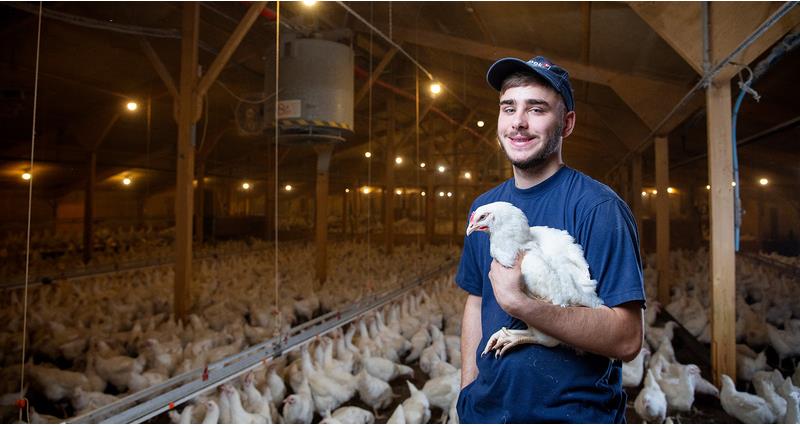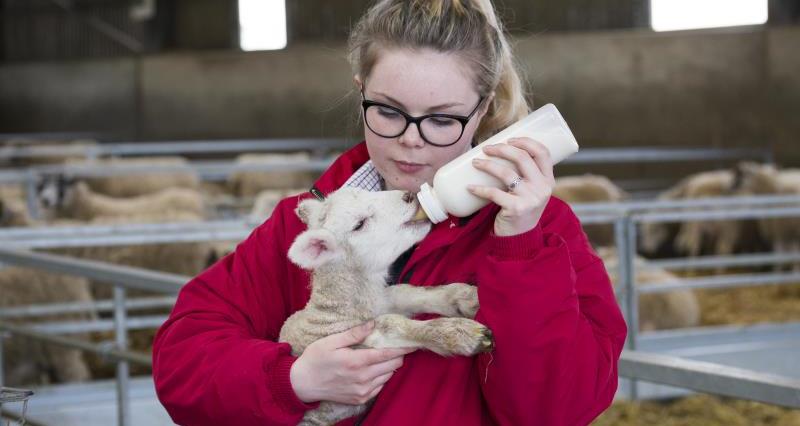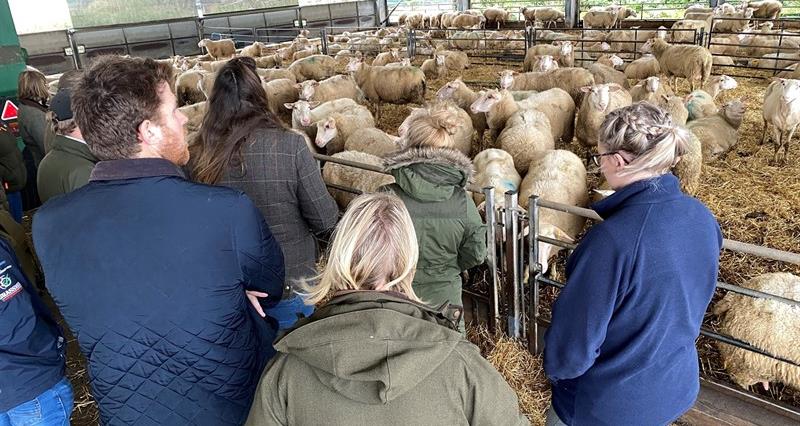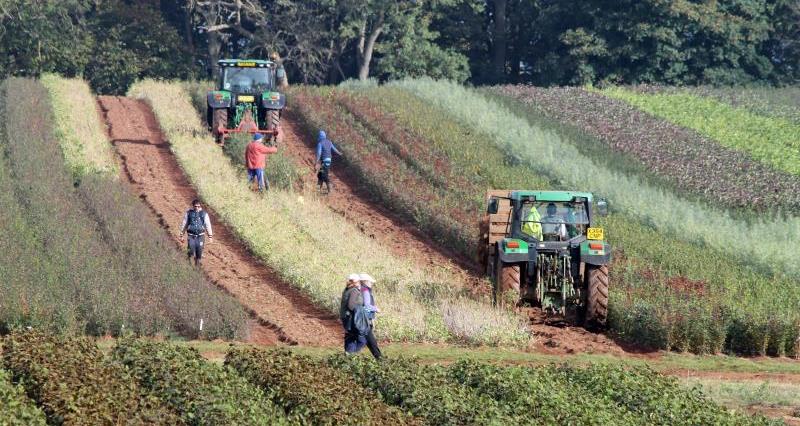Apprenticeships
Apprenticeships are for people aged 16 and over and combine working with studying to gain skills and knowledge.
Apprentices can be new or current employees. They:
- Work with experienced staff.
- Learn skills and knowledge.
- Get time off for training or study during the working week (at least 20% of normal working hours).
If you're considering starting an apprenticeship and aren't sure what to expect, have a read of our real-world farmer stories below:



Employer responsibilities
Apprentices must be paid at least the minimum wage.
Depending on the size of your business and the age of your apprentice, you may have to contribute 5% of the apprentice training and assessment costs.
Employers need to provide:
- A safe work environment.
- An induction which includes explaining relevant policies and procedures.
- Opportunities for the student to develop their skills within a farming or horticultural business.
- 20% of their time must go towards ‘off the job’ training delivered by a training provider during your apprentice’s normal working hours.
- ‘On the job’ training and support to ensure your apprentice’s success.
Employers also need to have a signed apprenticeship agreement and apprenticeship commitment statement from the learner and training provider.
Benefits to your business
Apprenticeships can be hugely beneficial to your business, allowing you to develop a tailored workforce with the skills your business needs. It also gives your existing employees the opportunity to pass on their knowledge to the next generation of farmers.
For more information, visit: or check out our business guides below:


Each T level is equivalent to 3 A levels and helps young people develop the knowledge, attitude and practical skills to start a successful career in food and farming.
T level students spend 80% of the course in the classroom learning the essential skills that farm workers need. The other 20% is a meaningful industry placement where the skills learnt in the classroom are put into action.
They are a free, government scheme and there is no requirement for a business to pay a T level student on placement, but you may wish to do so if you want.
There may be business costs such as time invested in planning, training, and supervising.
Find out more about T levels at: T Levels – vocational training in agriculture is changing
Read our guide for employers at: T Levels – how can employers and industry experts get involved?
Funding to support employers
The Department for Education has introduced a one-year to help employers with the costs of hosting T Level placements. Farmers and growers hosting T Level students can claim up to a total maximum of £25,000 per business for eligible costs including:
- Administrative costs – costs of setting up processes, procedures and systems for placements and providing a physical workspace for the student
- Training costs – costs of providing staff with the practical skills to support students on placements e.g. mentoring
- Tangible costs – costs of operating the placement such as PPE or other equipment, insurance, mandatory training, supervising the student on placement and transport for the student
Employer responsibilities
Employers need to provide:
- A safe working environment
- Opportunities for the student to develop their technical skills within farming and horticulture
- A line manager to support, supervise and monitor the student
- An induction which includes explaining relevant policies and procedures
- Formal feedback on the student’s progress against agreed learning goals at the end of the placement
T Level benefits
T Levels can help employers by:
- offering early access to a pipeline of talent for entry level positions
- help with recruitment
- improve innovation and help increase productivity.
Free courses and training for employees
We've pulled together a range of funded training opportunities available for your workforce:
Basic skills training
Any adult that does not have a level 2 qualification (GCSE grade 4 or equivalent in English or Maths) is legally entitled to fully funded study up to level 2.
Find out more at:
English for speakers of other languages
Adults can be fully, or part-funded for ESOL (English for Speakers of Other Languages) qualifications up to level 2.
Find out more at:
Free level 3 qualifications for adults
Any adult over 19 years who does not have a level 3 qualification (Equivalent to A levels) can choose from over 400 free level 3 courses including courses on agriculture, horticulture and forestry.
Find out more at



